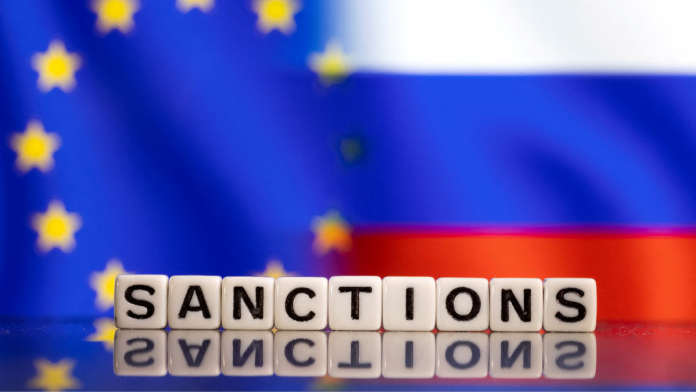The European Union has taken a strong step in its ongoing financial pressure on Russia. For the first time, the bloc is including cryptocurrency platforms in its sanctions package. This move is designed to block Russian residents from using digital currencies and limit the country’s ability to bypass existing financial restrictions.
The sanctions are part of the EU’s 19th package of measures. They target cryptocurrency platforms and banks connected to Russia’s alternative payment systems. In addition, the sanctions seek to restrict financial dealings with entities operating in special Russian economic zones. Officials say these new rules are designed to stay ahead of increasingly sophisticated attempts to avoid sanctions.
Crypto Platforms Now Under EU Sanctions
Traditionally, sanctions focused on banks, companies, and individuals. This time, the EU has extended its reach to digital currencies. All cryptocurrency transactions for Russian residents will be prohibited under the new rules. Banks and platforms that deal with Russia’s alternative payment systems will also face restrictions.
Officials highlighted that these measures are a response to Russia’s large-scale attacks against Ukraine. The recent drone and missile strikes have caused serious damage, even crossing EU borders in Poland and Romania. The sanctions aim to cut off financial tools that could help fund these attacks.
EU presents 19th sanctions package to pressure Russia amid US coordination
Digital currencies such as Bitcoin and Tether have become increasingly popular and accessible. Reports indicate that Russian oil companies have been using cryptocurrencies to conduct tens of millions of dollars in transactions every month. By converting funds into digital assets, these companies were able to bypass traditional financial systems and evade sanctions.
This growing use of crypto in international finance is exactly why the EU decided to act. By targeting cryptocurrency platforms, the bloc hopes to make it much harder for Russian entities to move money secretly. The EU’s new measures are seen as a significant step toward closing loopholes in existing sanctions.
Russian Crypto Evasion and Legal Actions
Authorities have observed that cryptocurrencies have become a key tool for evading sanctions. Several legal cases show that digital currencies were used to move large sums of money despite international restrictions. In one instance, a Russian national faced charges for laundering hundreds of millions of dollars through cryptocurrency companies. These companies facilitated transactions for sanctioned Russian entities, highlighting how digital currencies can be used to bypass laws and financial controls.
The EU’s decision to include cryptocurrency platforms in sanctions shows that digital currencies are no longer just a niche market. They are now a tool that can influence international conflicts and finance. By acting against crypto platforms, the EU aims to stop funds from flowing to entities that could support military operations or other prohibited activities.
EU and India explore trade and security pact under shadow of Russia sanctions
Ukraine Explores Bitcoin as a National Reserve
At the same time, Ukraine is exploring the use of cryptocurrencies to strengthen its financial system. Lawmakers are drafting a proposal to create a national Bitcoin reserve. The aim is to improve financial resilience and protect the economy during ongoing challenges.
The draft law would allow Ukraine to hold and manage Bitcoin as a national reserve. This move reflects the growing recognition of cryptocurrencies as valuable assets in global finance. Countries around the world are increasingly seeing digital currencies as a tool for economic stability and as a hedge against inflation.
The proposal is in its final stages, signaling serious interest from Ukraine in integrating Bitcoin into its national financial strategy. By exploring crypto reserves, Ukraine may show how digital currencies can support government finance, especially in times of conflict.


